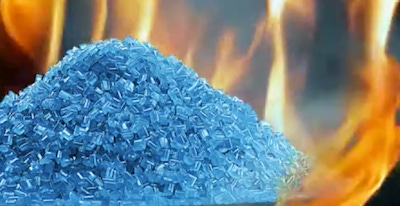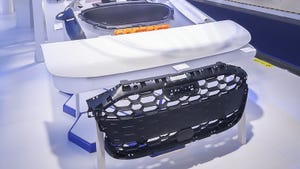Polymer Technology and Services expands Tristar range of flame-retardant polycarbonates
The high-performance plastics achieve effective self-extinguishing properties without the use of halogen-based additives.
December 12, 2016

Polymer Technology and Services LLC (PTS; Murfreesboro, TN), a global manufacturer of fame-retardant engineering thermoplastic compounds, is extending its Tristar AR family of polycarbonate-based materials with four halogen-compliant types certified 746R and 746H by Underwriters Laboratories (UL). The new grades are intended for electrical and telecommunication devices, business machines and small and large appliances. They will be available in Europe, North America and Asia.
 A UL 746R certification indicates that a plastic material conforms to the EU’s Restriction of Hazardous Substances (RoHS) directive, which limits the amount of six substances that plastics can contain. UL 746H certifies that a material conforms to non-chlorine and non-bromine requirements in IEC 61249, and is subject to continual monitoring by UL in its follow-up testing program.
A UL 746R certification indicates that a plastic material conforms to the EU’s Restriction of Hazardous Substances (RoHS) directive, which limits the amount of six substances that plastics can contain. UL 746H certifies that a material conforms to non-chlorine and non-bromine requirements in IEC 61249, and is subject to continual monitoring by UL in its follow-up testing program.
The four new halogen compliant compounds are Tristar PC-HC (which has a UL 94 flammability rating of V-2), Tristar PC-FR-HC (B-0 and V-1, depending on thickness), Tristar PC-FRN-HC (5 VA and V-0) and Tristar PC10GF-HC (5 VA and V-0).
Polycarbonate grades with UL 94 V-0 ratings are used in many products that are not powered by electricity but that need the strength of PC. Examples include hand tools, cases, lenses, personal protective gear and sports equipment. Attended electrical devices, such as electrical hand tools, appliances and business machines, require V-0 PC grades. Unattended electrical devices, such as electrical or telecommunications enclosure, mounted outside or inside of buildings, require use of the more stringent 5 VA listed grades.
A UL 94 V-2 flammability rating indicates that burning stops within 30 seconds on a specimen bar held vertically after a flame has been applied twice for 10 seconds; drips of particles are allowed. A V-1 flammability rating is the same as V-2, except that drips of particles are allowed as long as they are not inflamed. For a material to achieve a V-0 rating, burning must stop within 10 seconds, and drips of non-flaming particles are allowed. 5 VA indicates that burning stops within 60 seconds on a vertical specimen, but the flame ignition source is applied five times for five seconds; no drips are allowed. In addition, a plaque specimen held horizontally with the flame directly underneath may not develop a hole.
“The numerous UL certificates that we have obtained for these new grades demonstrate the ability we have at PTS to develop and manufacture high-performance plastics with effective self-extinguishing properties, without the use of halogen-based additives,” said Phil Berg, VP of Technology. “We achieve this through the use of the latest flame-retardant technology and advanced manufacturing process control, which we apply in our plants to serve customers globally.
“Companies in the electrical and electronics industries, especially in consumer electronics, are increasingly calling for plastics that comply with UL 746R and 746H, and we are very happy to be in a position to meet their demands. Our materials not only have excellent performance in their first life, but also offer increased flexibility for reuse and recycling.”
The new Tristar grades all come with full UL Yellow Cards, which provide detailed information on flammability ratings and electrical properties. They are available for sampling now, and will be fully commercialized by the end of the year in North America and Asia, and in Europe during the first quarter of 2017.
About the Author(s)
You May Also Like




